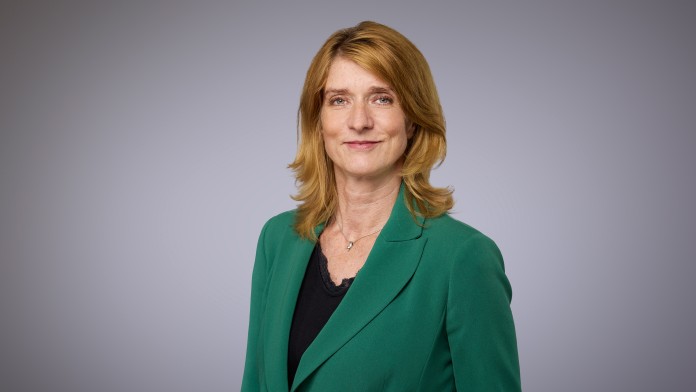Press Release from 2024-08-13 / Group, KfW Research
KfW Research: Households are generally open to sustainable financial investments
- 14 % are already investing green, a further 30% can imagine doing so
- Doubters deplore lack of information on the effectiveness of investment
- Lower returns play only a minor role
In Germany, 44% of households already put savings into sustainable financial investments (14%) or can imagine doing so in the future (30%). These include green accounts and savings deposits, sustainable funds and securities, and financial participations in renewable energy projects. Despite a general willingness, why are so many households still reluctant? Besides not having spare funds to invest, they mainly have doubts as to whether their money is indeed invested in a way that benefits the climate (32% of relevant households), while a further 19% do not understand the products.
These are the findings of a survey which KfW Research conducted among households as part of the KfW Energy Transition Barometer. Households currently hold EUR 7.7 trillion in financial assets, which makes them an important actor in the funding of the climate transition.
“Given the tight public finances, the contribution of private capital to the funding of the green transformation is highly relevant”,
said Fritzi Köhler-Geib, Chief Economist of KfW.
“The results of the survey show that many people in Germany are willing to allocate capital to climate-friendly projects within their possibilities. Crucially, however, they need to be given easier access to information on sustainable financial investments, especially on how it contributes to climate action.”
Conversely, the survey also revealed that 53% of households cannot imagine putting money in green financial investments, while 3% are undecided. But it also must be considered that these include a large number of households with below-average incomes that simply do not have money left over to save and invest. More than 56% of households with below-average incomes generally have no financial scope for a capital investment. Still, around 23% of households that have financial assets already invest in sustainable instruments.
Young people have a particular interest in green investments. The group of 18 to 30-year-olds is around three times more likely to hold sustainable funds and securities than the group of over 65-year-olds (15% vs. 5% of households). The picture is similar for green bank accounts and savings deposits (7% vs. 2%). It is slightly different with regard to investments in renewable energy generation, however (2% vs. 3%).
Respondents stated that the prospect of earning lower returns played only a minor role in their decision for or against a sustainable financial investment. All households that were potentially willing to invest or have already invested were shown a base scenario of EUR 10,000 in capital investment with 3% interest, or EUR 300 per year. In their response, 86% of all households stated their willingness to forego 0.1 percentage points in interest – or EUR 10 – if their investment was sustainable, while 74% would be willing to renounce 0.5 percentage points – EUR 50 – and 57% would even accept a 1.5 percentage point reduction – EUR 150.
“Households in Germany are a relevant group of investors for sustainable investments who, in an enabling environment, can play their part in contributing to the transformation of Germany and the world”,
said KfW’s Chief Economist Fritzi Köhler-Geib.
More information on the supplementary survey by KfW Research can be found at www.kfw.de/fokus
The dataset:
The KfW Energy Transition Barometer is a representative survey of households in Germany on decisions and attitudes around the topic of climate action. It is published annually. Some 6,000 households were surveyed under the current KfW Energy Transition Barometer 2024. Further information on the KfW Energy Transition Barometer can be found at www.kfw.de/energiewendebarometer


Share page
To share the content of this page with your network, click on one of the icons below.
Note on data protection: When you share content, your personal data is transferred to the selected network.
Data protection
Alternatively, you can also copy the short link: https://www.kfw.de/s/enkBbm2w.DHzA
Copy link Link copied